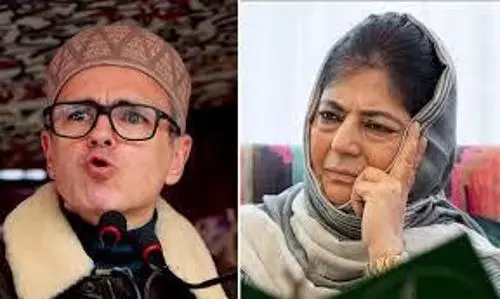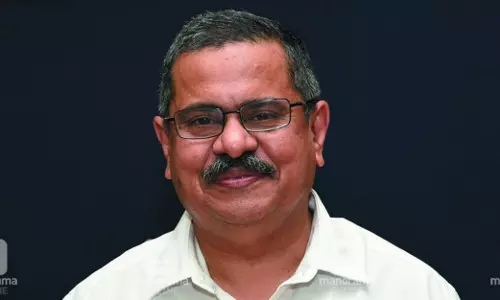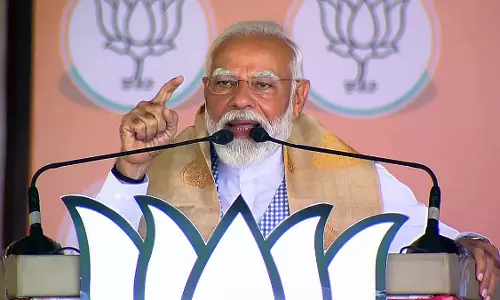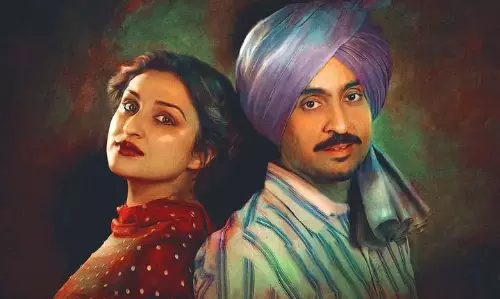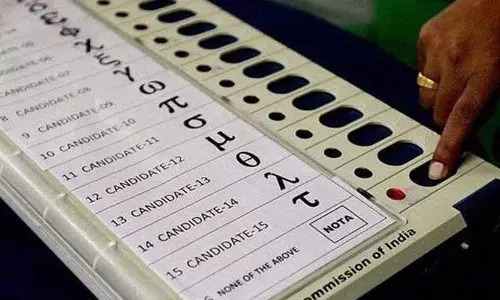
Cops committing suicide
text_fieldsThose of us used to hearing news of police' lathi being used indiscriminately against the people, and therfore shuddering at the very mention of the name of police, have been under the impression that the police force is marked by is mutual good will and cooperation. But facts tell otherwise.
The suicides of khaki-wearing individuals prove that the inner recesses of police force are virtual torture rooms ruled by malice. The number of suicides over the last few years vouch for the fact that let alone people-friendliness, some bosses in the force do not even have co-operation with colleagues. Officials of the Kerala Police Association share their concern with the people about increasing rate of such suicides. Its number in 2018 was 18. In the recent past the number was 66. Since 2015, the number of cops committing suicide has been steadily increasing. And that rate (10.6), as per a study report by Dr B Sandhya IPS, is double the national average of 25.4. As for the qustion why so many law-keepers opt for death, her answer is a combination of alcohol, workplace torment and family ruptures. If further probe is made into the family front and abuse of alcohol, they will end up nowhere else than in the dark alleys of the police empire.
What plagues the workplace of cops is mental stress caused by the overload of work and the authoritariansm of superiors. Police Association itself admits that such circumstances of work lead to suicide. The death of Kumar of AR Camp Kallekkad and the suicide note of Assistant Sub-Inspector (ASI) PC Babu of Thadiyittaparamba tell a tale of the enormity of mental stress caused by superior officers. The cause given by the suicide of female civil police officer Haniraj at her home was also similar, tormenting work ambience. Not only do the police staff in the lower ranks not get any humane consideration in work places, but they are even subjected to public insults. It has become a pattern that under pressure from superiors they are often forced to commit unlawful acts, and when the matter runs into controversy the higher ups escape and the lower officials get punished. In the recent of case of IAS officer Sriram Venkitaraman's car accident, Museum Crime Sub Inspector alone was made a scapegoat while the higher officials wriggled out. In the case of custodial death in Varappuzha, the officers who gave instructions went scot-free and the subordinates got booked which created some crisis within the police department itself. The discrimination at functional level between the upper and lower ranks of staff is as plain as the notions of untouchability during the era of castes.
Far higher than the number of suicides in the police force is the number of those who give up their job unable to stand the caste and gender prejudices. The reason for resignation of civil police officer K Ratheesh of AR Camp, Kannur was his inability to stand caste-linked insults. Kumar, another cop who committed suicide also experienced similar caste prejudice. The reasons for our police force not turning to democratic value perceptions are to be found in the outdated training programmes that have defied reforms despite passing of seven decades, and in the authoritative mind-sets that still persists. In the selection of police staff, psychological health is not a parameter in tests. And during the actual training period, mental fitness is not accorded any consideration similar to bodily fitness. What training camps impart are not the lessons of democratic co-existence, but the experiences of sadism. And then, those who emerge from them become law-breakers not only outside their vocation, but within the force too. And that is the alarming takeaway from the increasing suicides.
The problem gets further aggravated by the fact that police centres do not have any effective mechanism to solve the personal and behavioural issues of policemen who receive training. Duty overload, and being forced to work and forgo family time even on festival holidays, engender family disruptions and mental stress. Therefore, it is high time that a team is constituted from outside the police force to study the internal pressures and their solutions. Only then can rsignations caused by caste discriminations and suicides end. The government should be prepared to take ruthless action against the elitist mentality and caste bias of higher officers. Overall, the lesson taught by the suicides is the urgent need to overhaul the police force now bedevilled by racial prejudices, caste mindsets and colonial values.




